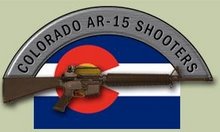Monday, March 12, 2007
Hugh Hewitt Mission in Iraq
Don't Encourage Our Enemies —Hugh Hewitt As signs of stability continue to accumulate in Iraq, so to do reports of terrible carnage as the radical Islamists spread mayhem as a means of bringing Iraq's fragile democracy down.The good news is that there is indeed good news, as the number of attacks and murders in Baghdad decline, and as Iraqis especially those in the Parliament confirm their understanding that there is no more time for maneuvering, only progress.Given the momentum shift, it should be the job of the Congress of the United States to discourage rather than encourage our enemies. But even after the defeat of the Senate Democrats nonbinding resolution, Harry Reid and company are back with another bit of grandstanding intended to mollify their fanatical anti-war base, even as it undermines the mission in Iraq.We urge the Republicans to again take up the challenge of defending the mission and the troops. The Democrats are fully committed to defeat. The supporters of victory look for leadership from the Senate GOP.
Friday, March 9, 2007
Federal court overturns D.C. handgun ban, 2-1 vote
I found this....By Matt Apuzzo
The Associated Press
WASHINGTON — In a case that could shape firearms laws nationwide, attorneys for the District of Columbia argued Thursday that the Second Amendment right to bear arms applies only to militias, not individuals.
The city defended as constitutional its long-standing ban on handguns, a law some gun opponents have advocated elsewhere. Civil-liberties groups and pro-gun organizations say the ban is unconstitutional.
At issue in the case before a federal appeals court is whether the Second Amendment right to "keep and bear arms" applies to all people or only to "a well-regulated militia." The Bush administration has endorsed individual gun-ownership rights, but the Supreme Court has never settled the issue.
If the dispute makes it to the high court, it would be the first case in nearly 70 years to address the amendment's scope. The court disappointed gun-owner groups in 2003, when it refused to take up a challenge to California's ban on assault weapons.
In the Washington, D.C., case, a lower-court judge told six city residents in 2004 that they did not have a constitutional right to own handguns. The plaintiffs include residents of high-crime neighborhoods who want guns for protection.
Courts have upheld bans on automatic weapons and sawed-off shotguns, but this case is unusual because it involves a prohibition on all pistols. Voters passed a similar ban in San Francisco last year, but a judge ruled it violated state law. The Washington, D.C., case is not clouded by state law and hinges directly on the Constitution.
"We interpret the Second Amendment in military terms," said Todd Kim, the District's solicitor general, who told the U.S. Court of Appeals for the District of Columbia Circuit that the city also would have had the authority to ban all weapons.
Of the three judges, Judge Laurence Silberman was the most critical of Kim's argument and noted that, despite the law, handguns were common in the District. Silberman and Judge Thomas Griffith seemed to wrestle with the meaning of the amendment's language about militias. If a well-regulated militia is no longer needed, they asked, is the right to bear arms necessary?
"That's quite a task for any court to decide that a right is no longer necessary," replied Alan Gura, an attorney for the plaintiffs. "If we decide that it's no longer necessary, can we erase any part of the Constitution?"
+ 1 Gun Owners [usa]
The Associated Press
WASHINGTON — In a case that could shape firearms laws nationwide, attorneys for the District of Columbia argued Thursday that the Second Amendment right to bear arms applies only to militias, not individuals.
The city defended as constitutional its long-standing ban on handguns, a law some gun opponents have advocated elsewhere. Civil-liberties groups and pro-gun organizations say the ban is unconstitutional.
At issue in the case before a federal appeals court is whether the Second Amendment right to "keep and bear arms" applies to all people or only to "a well-regulated militia." The Bush administration has endorsed individual gun-ownership rights, but the Supreme Court has never settled the issue.
If the dispute makes it to the high court, it would be the first case in nearly 70 years to address the amendment's scope. The court disappointed gun-owner groups in 2003, when it refused to take up a challenge to California's ban on assault weapons.
In the Washington, D.C., case, a lower-court judge told six city residents in 2004 that they did not have a constitutional right to own handguns. The plaintiffs include residents of high-crime neighborhoods who want guns for protection.
Courts have upheld bans on automatic weapons and sawed-off shotguns, but this case is unusual because it involves a prohibition on all pistols. Voters passed a similar ban in San Francisco last year, but a judge ruled it violated state law. The Washington, D.C., case is not clouded by state law and hinges directly on the Constitution.
"We interpret the Second Amendment in military terms," said Todd Kim, the District's solicitor general, who told the U.S. Court of Appeals for the District of Columbia Circuit that the city also would have had the authority to ban all weapons.
Of the three judges, Judge Laurence Silberman was the most critical of Kim's argument and noted that, despite the law, handguns were common in the District. Silberman and Judge Thomas Griffith seemed to wrestle with the meaning of the amendment's language about militias. If a well-regulated militia is no longer needed, they asked, is the right to bear arms necessary?
"That's quite a task for any court to decide that a right is no longer necessary," replied Alan Gura, an attorney for the plaintiffs. "If we decide that it's no longer necessary, can we erase any part of the Constitution?"
+ 1 Gun Owners [usa]
Subscribe to:
Comments (Atom)
